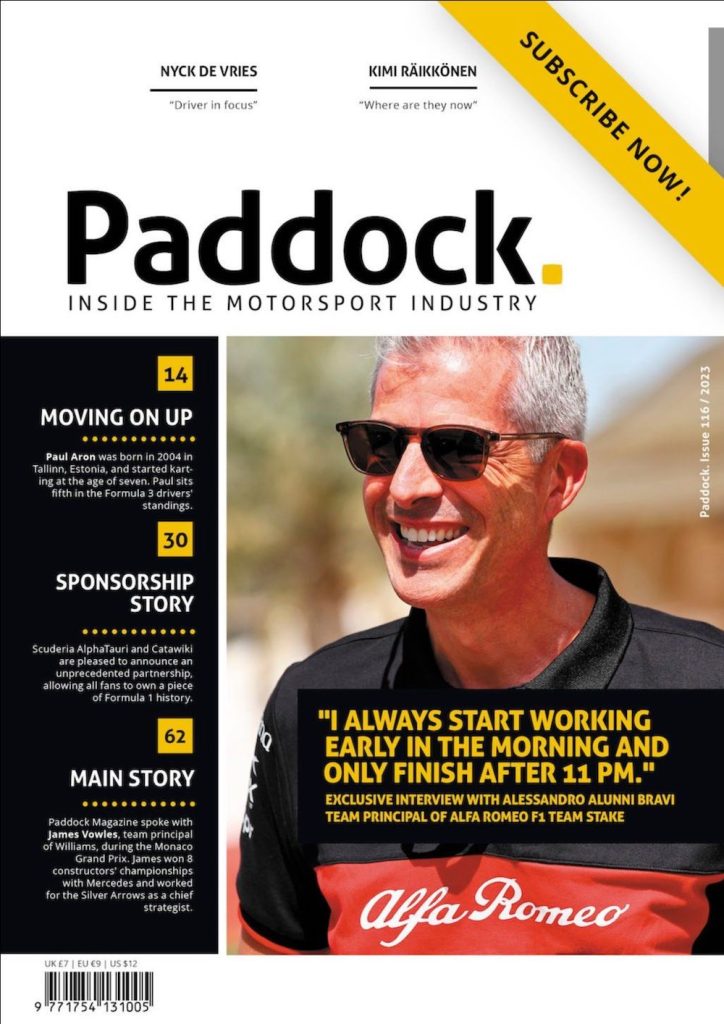Ahead of the RB13’s first test in Barcelona next week, interviews with members of the Red Bull Racing team are now available.
Click here to subscribe to our print edition!
Team Principal Christian Horner talks about Red Bull in a changing Formula 1, the team’s exciting driver pairing and his expectations for the 2017 season.
Members of the technical team talk about the challenges and opportunities arising from the radical 2017 regulation changes, the design of the RB13 and the excitement ahead of the first test in Barcelona. These interviews feature Chief Technical Officer Adrian Newey, Head of Aerodynamics Dan Fallows, Chief Engineering Officer Rob Marshall, Chief Engineer (Car Engineering) Paul Monaghan and Chief Engineer (Performance Engineering) Pierre Waché.
About Christian Horner:
Christian’s path to the top rung of the Formula One management ladder began behind the wheel, as a talented young racer. After rising through the ranks to Formula 3000 level in the late 1990s, Christian eventually hung up his helmet and moved to a management role. At the age of 25, he founded the Arden International race team and quickly built the squad into a formidable winning machine.
Three consecutive International Formula 3000 team championships from 2002-2004 as well as Drivers’ titles in 2003 and 2004 brought the young team owner to the attention of Red Bull owner Dietrich Mateschitz and when the company decided to field its own F1 entry in 2005, it turned to Horner to run the operation.
A solid first season in F1 saw Christian guide the Team to seventh in the Constructors’ Championship but the real success came at the end of the campaign when Christian secured the services of legendary designer Adrian Newey as Chief Technical Officer.
Development was swift over the following two seasons and by 2009 the Team was in a position to capitalise on major rule change within the sport. Red Bull Racing took its first win, and it’s first 1-2 victory, at the Chinese Grand Prix in 2009 and the triumph sparked a winning streak that by the end of the campaign would see the Team visit the top step of the podium on six occasions in all.
The Team’s 2009 success proved to be only the start, however, and in 2010 Christian led the Team to its first Drivers’ and Constructors’ titles. With unstoppable momentum reached, three more double World Championships followed (in 2011, 2012 and 2013), and by the end of 2013, a glorious half-decade of success had resulted in 47 wins and 57 pole positions.
Tougher times were on the horizon, however, and when Formula 1 introduced hybrid power units in 2014 the Team’s dominance ended abruptly.
A tough path to second in the 2014 Constructors’ Championship was followed by a disappointingly winless 2015 and a drop to fourth in the team’s battle in 2015. However, despite the downturn, the Team, under Christian’s leadership, remained resolute and ambitious and the rebuilding process soon began to reap dividends.
Two wins in 2016, including a first for new recruit and the sport’s youngest winner Max Verstappen, signalled an upswing and over the following three seasons the team would take 10 more victories and finish in P3 in the Constructors’ every year. And the steady hand at the tiller has been key to the recovery.
Internally, talent has been invested in, exceptional star drivers have been uncovered and beneficial new partnerships have been forged. Fifteen years ago, the future of F1’s boldest team looked bright when F1’s youngest team principal took charge, and though there are a few more grey hairs apparent, nothing else has changed.





Related Articles